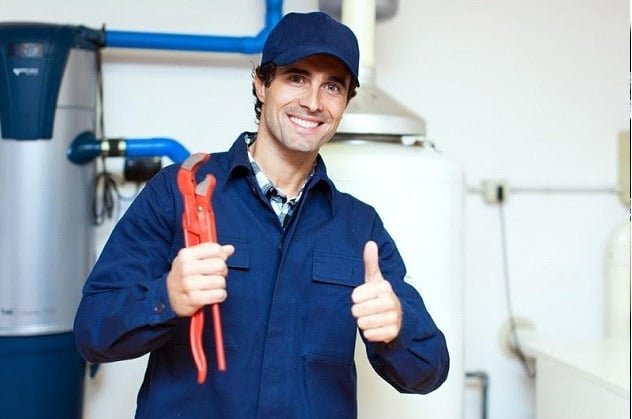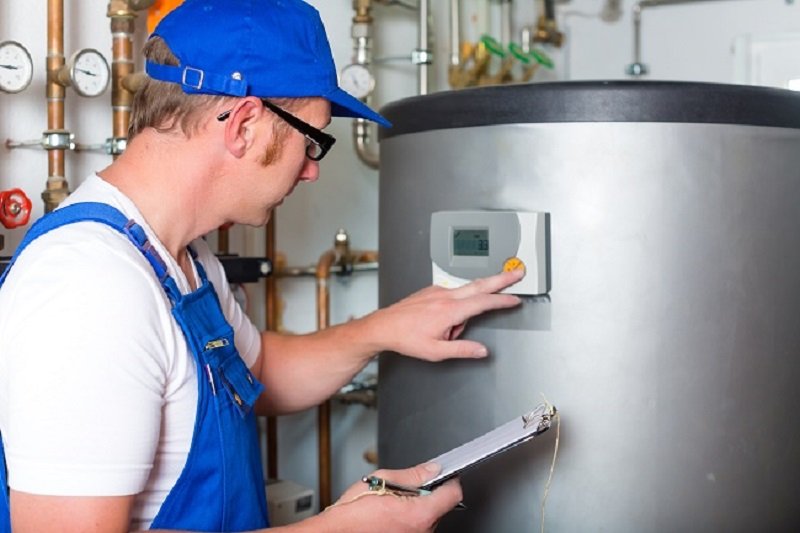Professional hot water service ensures your home or business enjoys reliable hot water with maximum efficiency and safety. Whether you’re facing an unexpected breakdown, upgrading an aging system, or installing a new water heater, expert installation and replacement services are crucial for optimal performance. This comprehensive guide covers everything from recognizing failure signs and selecting the right system to understanding costs and maintaining your investment—providing the knowledge needed to make informed decisions about your hot water needs.
Recognizing the Signs: When You Need Hot Water Service Replacement
Age-Related Decline: Most traditional tank systems last 8-12 years, while tankless units can function for 15-20 years. If your system is near or beyond this lifespan, proactive replacement prevents catastrophic failures.
Performance Issues: Symptoms include:
- Rusty water (indicating internal tank corrosion)
- Inconsistent temperatures or lukewarm output
- Unusual noises (rumbling from sediment buildup)
- Frequent repairs within a short period
-
Leaks and Physical Damage: Pooling water around the unit, corrosion on pipes or valves, or visible tank damage signal immediate replacement needs. Ignoring leaks risks structural damage and mold growth.
-
Rising Energy Bills: Older units lose efficiency due to sediment accumulation and component wear. A 20-30% spike in energy costs often justifies investing in a modern, energy-efficient model.
Types of Hot Water Systems: Choosing the Right Solution
Storage Tank Systems
- Electric: Affordable installation ($600–$2,500) but higher operating costs. Ideal for homes without gas lines.
- Gas: Lower running costs ($202–$315 annually) but requires venting. Best for high-demand households.
- Solar: Harnesses renewable energy with 60-80% lower operating costs. Higher upfront investment ($2,000–$5,500) offset by government rebates.
Tankless (Continuous Flow) Systems
- Heat water instantly without a storage tank.
- Pros: Unlimited hot water, space-saving, 20+ year lifespan.
- Cons: Higher installation costs ($2,100–$4,000) and may require gas/electrical upgrades.
Heat Pump Systems
- Hybrid electric units extract heat from the air.
- Deliver 3-4× higher efficiency than standard electric models.
- Cost $2,000–$3,500 but qualify for up to $2,000 in tax credits.
Table: Hot Water System Comparison
| Type | Installation Cost | Lifespan | Best For |
|---|---|---|---|
| Electric Tank | $600–$2,500 | 8–12 years | Budget-conscious |
| Gas Tank | $800–$3,000 | 10–15 years | High-use households |
| Tankless | $2,100–$4,000 | 15–20 years | Small spaces |
| Heat Pump | $2,500–$3,500 | 10–15 years | Energy savings |
| Solar | $2,000–$5,500 | 15–20 years | Eco-friendly homes |
Comprehensive Cost Breakdown: Installation, Replacement, and Hidden Fees
Equipment and Labor Expenses
- Tank Systems: $600–$3,000 (unit) + $300–$800 (labor)
- Tankless Systems: $1,000–$2,000 (unit) + $800–$1,500 (labor)
Additional Cost Factors
- Venting: Gas systems require venting ($300–$1,000 for materials/labor).
- Fuel Conversion: Switching from electric to gas adds $1,500–$2,300 for new gas lines.
- Permits: Local council approvals cost $50–$300.
- Emergency Service: After-hours replacements incur $200–$500 premiums.
Table: Hidden Replacement Costs
| Factor | Cost Range | When Required |
|---|---|---|
| Gas Line Installation | $500–$2,000 | Switching fuel types |
| Electrical Upgrades | $300–$800 | High-demand tankless units |
| Earthquake Strapping | $100–$300 | Seismic zones |
| Expansion Tank | $40–$150 | High-pressure areas |
| Old Unit Removal | $100–$300 | Standard disposal fee |
The Professional Installation Process: What to Expect
Assessment and Sizing: Technicians evaluate your household size, peak demand (e.g., simultaneous showers/appliances), and existing infrastructure. A 4-person home typically needs a 50–80-gallon tank or 27–36L/min tankless unit.
System Selection: Experts recommend models based on:
- Fuel availability (gas, electric, solar)
- Space constraints (e.g., rooftop solar vs. indoor heat pump)
- Budget and efficiency goals
Site Preparation: Includes:
- Shutting off water/power
- Removing old units
- Reinforcing floors for heavy tanks
- Installing seismic straps in earthquake-prone areas
Installation and Testing: Professionals handle plumbing, electrical/gas connections, and venting. Post-installation, they:
- Flush the system to remove debris
- Check for leaks
- Verify thermostat and pressure relief valve operation
- Demonstrate usage and maintenance

Essential Maintenance: Extending System Longevity
Annual Professional Servicing
- Anode Rod Inspection: Replacing this corrosion magnet every 3–5 years prevents tank rust.
- Tank Flushing: Removing sediment improves efficiency and prevents overheating.
- Vent/Flue Check: Ensures safe exhaust gas expulsion in gas systems.
DIY Monthly Checks
- Pressure Relief Valve Test: Lift the valve lever to verify water discharge.
- Temperature Setting: Ensure the thermostat is at 50°C (120°F) to prevent scalding and bacterial growth.
- Leak Inspection: Examine pipes, joints, and tank seams.
Pro Tip: For households in Templestowe with hard water, quarterly flushing minimizes scale buildup that reduces heating efficiency by up to 30%.
Choosing Your Hot Water Service Provider: Key Considerations
Licensing and Certifications: Verify plumbers hold:
- VIC Plumbing Licence
- Gas Fitting Licence
- Manufacturer authorizations (e.g., Rheem, Rinnai)
Experience and Specialization: Opt for companies like Australian Hot Water with 40+ years in hot water systems, not general plumbers.
Transparent Pricing: Avoid quotes without breakdowns. Reputable providers offer:
- Free upfront quotes
- No hidden fees
- Price-matching guarantees
Warranties: Look for:
- 6-year workmanship guarantees
- 1-year service warranties
- Brand-backed tank coverage (e.g., 10-year warranties)
-
Emergency Support: Choose providers offering 24/7 same-day service for burst tanks or no-hot-water crises.
Case Study: Templestowe Upgrade to Energy-Efficient Hot Water
Background: A Templestowe family replaced a 15-year-old electric tank system that caused soaring bills and cold showers.
Solution: Installed a heat pump hot water service with:
- $0 upfront cost using Victoria’s Solar Homes rebate
- 70% reduced energy consumption
- Smartphone-controlled temperature settings
Outcome: Annual energy savings of $610 with a projected payback period of 4.2 years.
Conclusion: Secure Your Reliable Hot Water Future
Investing in professional hot water service ensures safety, efficiency, and uninterrupted comfort. From recognizing early failure signs to selecting accredited installers, every step impacts your system’s longevity and cost-effectiveness. Whether upgrading to a solar unit in Templestowe or opting for emergency tank replacement, prioritize licensed experts with transparent pricing and robust warranties. For tailored advice or urgent needs, contact trusted local specialists today.
Ready for a reliable hot water solution? For reliable and affordable hot water service Templestowe residents trust, contact our expert plumbing team today.





